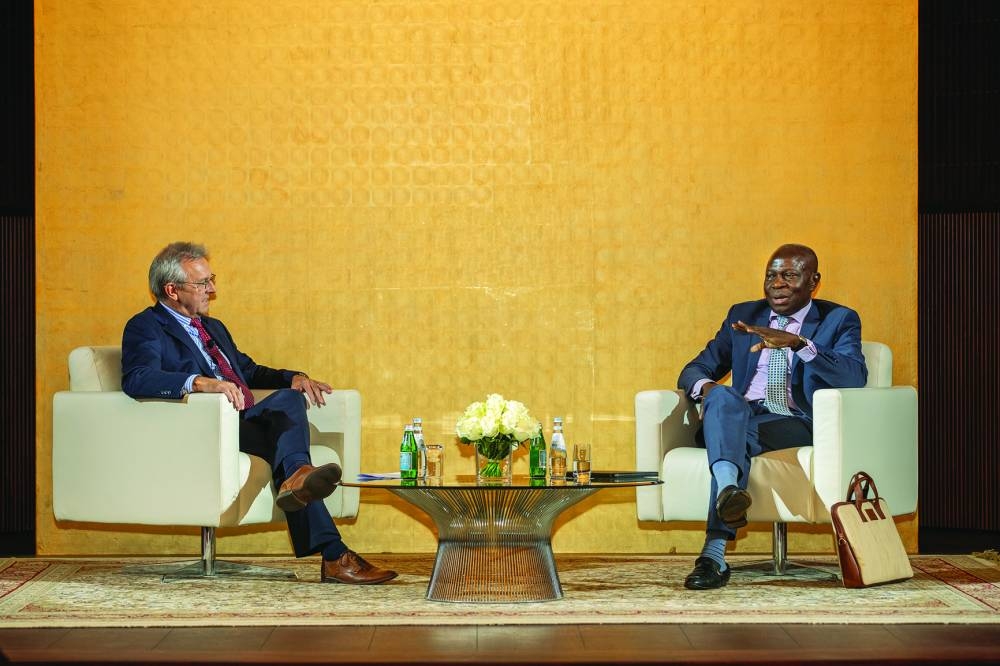The International Labour Organisation (ILO) director general Gilbert F Houngbo has underscored the vital importance of embracing multilateralism and global collaboration to create a more equitable and just world. He was addressing an event hosted by Georgetown University in Qatar (GU-Q), a QF partner, on “From G20 to the SDG Summit: Where Do We Stand on Decent Work and Social Justice?”
After an introduction by Dr Gerd Nonneman, professor of International Relations and Gulf Studies at GU-Q, Houngbo provided an in-depth overview of the ILO’s commitment to advancing social justice, combating workplace inequalities and discrimination, improving labour conditions, expanding social protection, and promoting gender equality on a global scale.
In a world that has become more fragmented, he said, global co-operation is needed more than ever. “Despite our exit from Covid-19, we continue to face compounding crises and sweeping transformations that pose significant challenges to our efforts to advance social justice as the precondition for peace and stability.”
He also noted that transformative technologies, including AI, are reshaping economies and societies. He highlighted a recent ILO study that predicts that AI will likely enhance the productivity of more jobs than it replaces, but will likely result in major economic and social changes, requiring heavy investments in reskilling workers.
In an on-stage conversation with Dr Nonneman, the director-general explained the ILO’s working process as a unique trilateral organisation made up of states, employers and trade unions. He also addressed Qatar’s labour reforms, noting that the government had engaged closely with the ILO. He praised the positive steps taken in Qatar and the country’s continued commitment to progress, but also recognised ongoing labour-related challenges, particularly concerning migrant workers.
Dr Nonneman said: "Our students had a unique opportunity to hear directly from, and discuss with, the head of this major international organisation, that even pre-dates the UN, dedicated to addressing labour-related issues worldwide, and to learn about the challenges of dealing with these issues through international diplomacy, negotiation with multiple stakeholders, and technical assistance. These sorts of conversations equip our students with the nuanced understanding and critical thinking abilities they will need to grow into future leaders and decision-makers.”

Dr Gerd Noneman and Gilbert F Houngbo (right) at the event.
